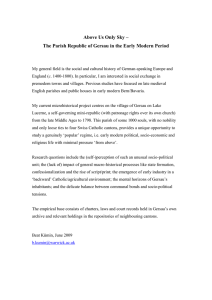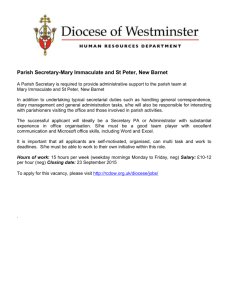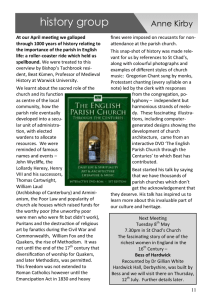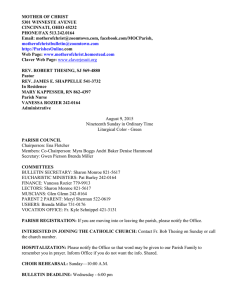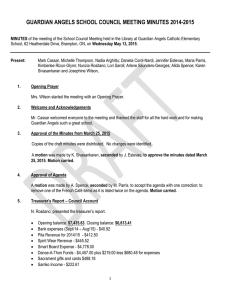Piety and the parish in early modern Orléans
advertisement
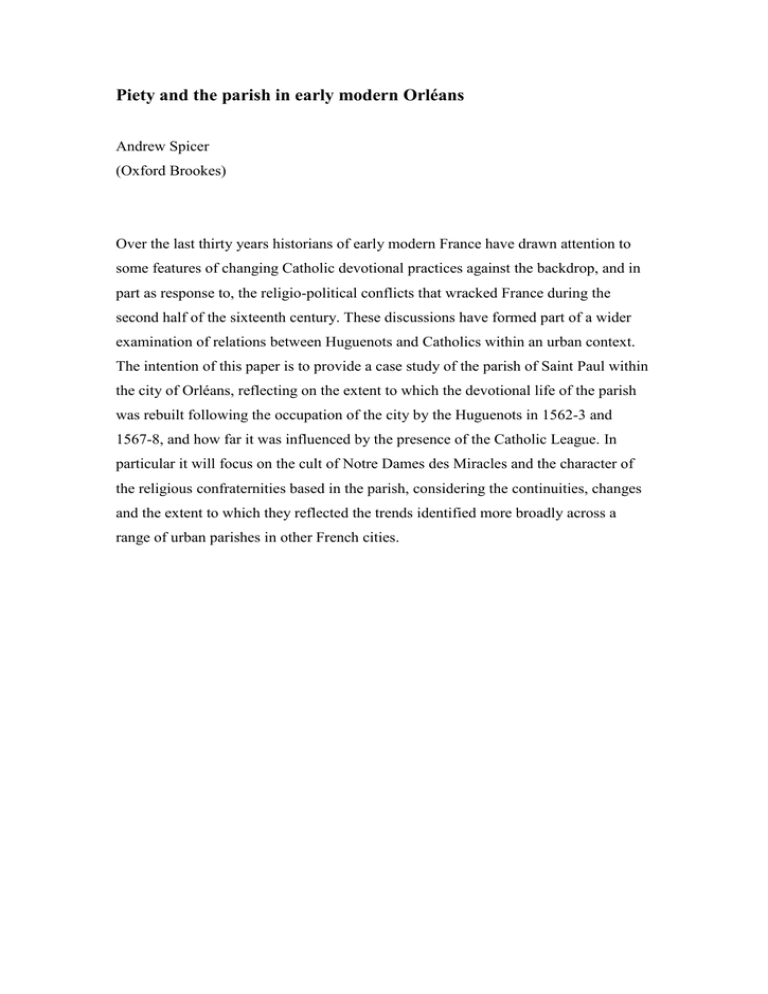
Piety and the parish in early modern Orléans Andrew Spicer (Oxford Brookes) Over the last thirty years historians of early modern France have drawn attention to some features of changing Catholic devotional practices against the backdrop, and in part as response to, the religio-political conflicts that wracked France during the second half of the sixteenth century. These discussions have formed part of a wider examination of relations between Huguenots and Catholics within an urban context. The intention of this paper is to provide a case study of the parish of Saint Paul within the city of Orléans, reflecting on the extent to which the devotional life of the parish was rebuilt following the occupation of the city by the Huguenots in 1562-3 and 1567-8, and how far it was influenced by the presence of the Catholic League. In particular it will focus on the cult of Notre Dames des Miracles and the character of the religious confraternities based in the parish, considering the continuities, changes and the extent to which they reflected the trends identified more broadly across a range of urban parishes in other French cities.




